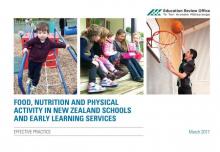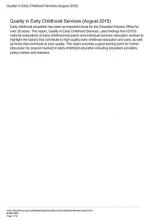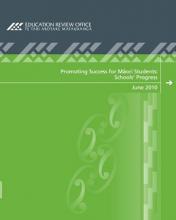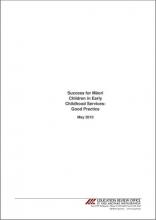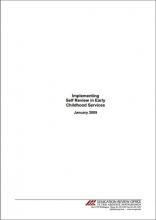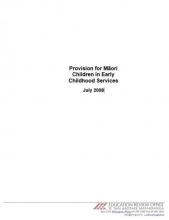Food, Nutrition and Physical Activity in NZ Schools and Early Learning Services
In late 2015, the Cabinet Social Policy Committee asked ERO to assess ‘the current status of food, nutrition and physical activity in schools and early childhood services’ and to report on Health Promoting Schools that were included in the sample. We visited 202 early learning services, 46 primary schools and 29 secondary schools in the first half of 2016.
We asked: How well does the service/school promote positive attitudes to physical activity, and food and nutrition to benefit children?
